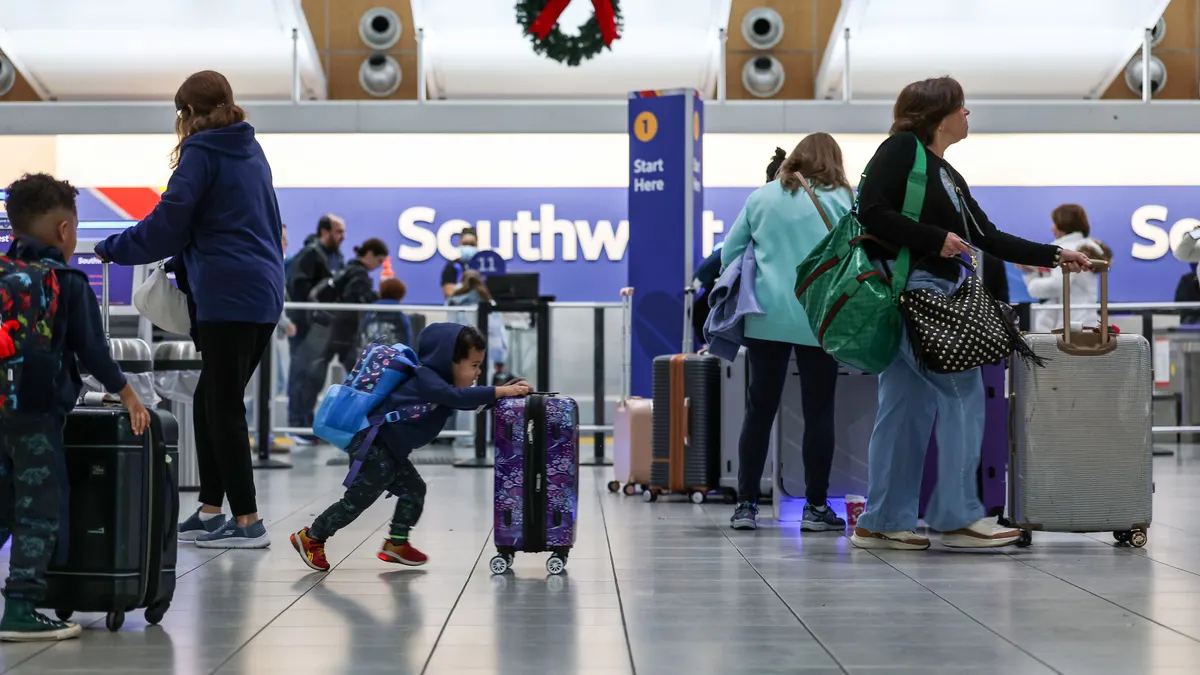While consumers are asking for more sustainable travel choices, they’re also skeptical of what some hospitality companies are claiming counts.
In Booking.com's Sustainable Travel Report 2023, a majority of respondents (74%) said they want travel companies to offer more sustainable choices, though 44% don’t know where to find these options. Even when presented with travel options labeled sustainable, 39% said they don’t believe the offerings truly are more sustainable.
According to Jeremy Sampson, CEO of the global nonprofit The Travel Foundation, confusion around “sustainability” in hospitality in part comes from a lack of consensus on what the term means.
“I think if you asked 100 different travelers to define what they mean by sustainable, they would probably give 100 different answers, and that's part of the problem — a big part of the problem,” Sampson said.
Megan Morikawa, Iberostar’s global sustainability lead, similarly said sustainability in the hospitality industry is a broad concept and could mean everything from opportunities for workers to volunteer at local charities to how much water a business is consuming to what hotels are using in their supply chain.
The definition of sustainability also varies by generation, Sampson said. People of younger generations, like Gen Z, define sustainability around their core values, with concern for the environment and climate change. Alternatively, older generations do not have such strong convictions on the topic.
Data from Pew Research Center shows that in 2021, 37% of Gen Z individuals said addressing climate change is a top personal concern, compared to 29% of baby boomers.
As travelers become more environmentally conscious, their baseline expectations for travel experiences or accommodations are changing, and they are holding hospitality organizations to a higher standard of communication and action, Sampson noted.
Metrics matter
While the onus is partially on the consumer to evaluate what their values are and educate themselves on the travel options they choose, said Morikawa, hotels also have a responsibility to clearly display or communicate their sustainability efforts, as well as the quantitative results.
Iberostar lists its climate change commitments on its website in a “decarbonization roadmap,” including the hotel brand’s commitment to reduce emissions by 58% by 2030 from a 2019 base year. It commits to reducing refrigerant gas emissions, renewable electricity sourcing, electrification of usages of fossil fuels and optimization of energy. Additionally, it plans to reduce emissions from purchased goods and services, capital goods, fuel and energy-related activities, waste generated in operations, downstream leased assets, business travel and employee commuting.
In 2019, Iberostar had a carbon footprint estimated to be 1.02 million metric tons of CO2e, which it plans to reduce to 594,000 metric tons in 2030.
The commitments align with the Glasgow Declaration on Climate Action in Tourism — co-authored by Sampson — designed to clearly define and align hospitality organizations on climate change standards. Iberostar is one of more than 500 signatories of the declaration with the common goal of halving emissions by 2030, achieving net zero by 2050 and reporting publicly on progress made to those commitments. Other signatories include Radisson Hotel Group and Expedia Group.
“[Iberostar] really needs to be thinking about mitigating climate change, making sure that we're reducing our footprint and improving our adaptation to withstand some of the impacts that climate change can bring about, like extreme weather events,” said Morikawa, who noted the Glasgow Declaration is focused on just one aspect of sustainability.
Taking a holistic approach
Sampson similarly stressed that climate change is just one part of sustainability in tourism. He said hoteliers must take a holistic approach to the topic — not only ensuring their property is functioning under environmentally friendly practices but that they are positively impacting the surrounding community or destination, including hiring local workers to increase representation and further economic development.
In addition to prominently displaying information about sustainability efforts on their booking channels, hotels should also consider obtaining widely recognized third-party certifications — think LEED — to reassure travelers of their credibility, according to Lucas Bobes, group environmental officer and head of ESG reporting at Amadeus.
This is reflected in Booking.com’s study, with 65% of travelers surveyed saying they would feel better about staying in a particular accommodation if they knew it had a sustainable certification or label.
Sampson said many travel organizations are also implementing smaller-scale sustainable practices by default, like replacing a meat entree with a vegetarian special to lower meat procurement, thus cutting carbon emissions. Though respondents in Booking.com's study said they don't know where to find sustainable options, they might still be participating in eco-friendly practices as these small shifts become more normalized.



















